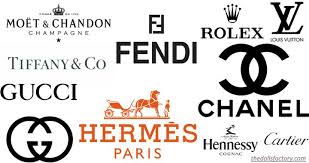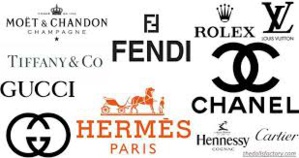The high end retailing landscape of China is being partially impacted by its trade war with the United States because the affluent and luxury goods seeing Chinese customers have moved away from purchasing the costly autos but have continued with their interest in purchasing luxury handbags and champagne.
There are signs that the China-led boom in top-end retail has not yet derailed because of the trade war and the economic slowdown of the country, exhibited from the reports that were published by LVMH, the parent company of Louis Vuitton leather goods, and Dom Prignon champagne, in addition to reports of spending from casino operators in Macau. This trend is helping to offset the hit that has been faced by the likes of BMW and Mercedes as well as the luxury real-estate.
There has been a rapid growth of its wines and spirits business in China, said the French luxury giant LVMH and added that there has been an exceptional business performance in the critical markets of Hong Kong and the gambling enclave of Macau for its luxury retailer DFS. LVMH said that throughout the globe, "all geographical areas progressed well". The luxury brand reported a 10 per cent increase in its third-quarter sales globally.
The trade spat between China and the US was furthered last month after the US president Donald Trump imposed another round of import tariffs on Chinese goods worth $200 billion which includes import of handbags from China. US also announced that the tariffs would be increased to 25 per cent at the beginning of next year. As a retaliatory move, Chinese authorities announced its decision to impose import tariffs on $60 billion worth of US goods. There has been a rise in concerns among businesses that the Chinese consumers would reduce spending on luxury items because most of the additional costs incurred by the retailers because of the tariffs are passed on to the consumers.
In the last decade or so, a large number of Chinese households have increased their income and have crossed the middle income level to become affluent and this has led to an acute dependency of luxury brands on their business in China.
The Golden Week holiday, which is often seen as a thermometer for China's economy and is organized in Macau, was also a reason for relief. There was a 14 per cent increase year-on-year in the number of Chinese tourists arriving at the world's largest gaming centre in the period that ended Sunday. According to Morgan Stanley, 10 per cent more bets were placed by high rollers in the first six days of October compared to the same period a year ago.
And despite the good performance of the casino market lately, concerns continue to linger in the minds of analysts about the performance of the industry in the next few months which they feel would be be slower primarily because of a slow macro economic scenario in China.
(Source:www.marketwatch.com)
There are signs that the China-led boom in top-end retail has not yet derailed because of the trade war and the economic slowdown of the country, exhibited from the reports that were published by LVMH, the parent company of Louis Vuitton leather goods, and Dom Prignon champagne, in addition to reports of spending from casino operators in Macau. This trend is helping to offset the hit that has been faced by the likes of BMW and Mercedes as well as the luxury real-estate.
There has been a rapid growth of its wines and spirits business in China, said the French luxury giant LVMH and added that there has been an exceptional business performance in the critical markets of Hong Kong and the gambling enclave of Macau for its luxury retailer DFS. LVMH said that throughout the globe, "all geographical areas progressed well". The luxury brand reported a 10 per cent increase in its third-quarter sales globally.
The trade spat between China and the US was furthered last month after the US president Donald Trump imposed another round of import tariffs on Chinese goods worth $200 billion which includes import of handbags from China. US also announced that the tariffs would be increased to 25 per cent at the beginning of next year. As a retaliatory move, Chinese authorities announced its decision to impose import tariffs on $60 billion worth of US goods. There has been a rise in concerns among businesses that the Chinese consumers would reduce spending on luxury items because most of the additional costs incurred by the retailers because of the tariffs are passed on to the consumers.
In the last decade or so, a large number of Chinese households have increased their income and have crossed the middle income level to become affluent and this has led to an acute dependency of luxury brands on their business in China.
The Golden Week holiday, which is often seen as a thermometer for China's economy and is organized in Macau, was also a reason for relief. There was a 14 per cent increase year-on-year in the number of Chinese tourists arriving at the world's largest gaming centre in the period that ended Sunday. According to Morgan Stanley, 10 per cent more bets were placed by high rollers in the first six days of October compared to the same period a year ago.
And despite the good performance of the casino market lately, concerns continue to linger in the minds of analysts about the performance of the industry in the next few months which they feel would be be slower primarily because of a slow macro economic scenario in China.
(Source:www.marketwatch.com)






